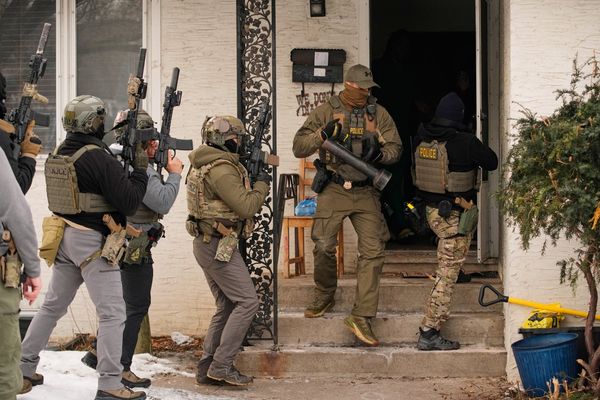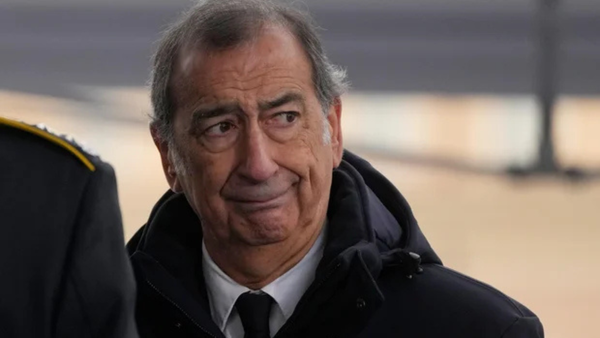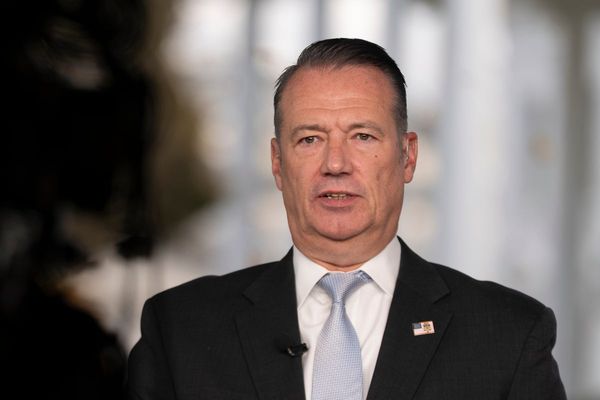
A washing machine brimming with fake bank notes and surrounded by union jacks sits on the pavement of one of London’s most exclusive streets.
Its provocative presence in the borough of Kensington and Chelsea on Friday morning is intended to symbolise the laundering of dirty money in the British capital.
Since Vladimir Putin launched his bloody invasion of Ukraine last month, Britain has come under increasing pressure to clean up its act by introducing new legislation to aid transparency and tackle corruption.
It has taken the first step by introducing an Economic Crime Bill and by freezing the UK assets of some Russian oligarchs linked to the Kremlin. However, campaigners believe such moves are only a start.
Rachel Davies, head of advocacy at Transparency International UK, speaks of the unquantifiable scale of the issue.
“Because of the layers of secrecy, nobody really knows how much dirty money there is – not even the National Crime Agency (NCA),” she says.
Through open-source research, Transparency International found that at least £6.7bn of British property had been bought with “suspicious funds”, £1.5bn of which is Russian-owned.
Almost £300m in potentially fraudulent Russian money has been invested in bricks and mortar in Kensington, the most unequal borough in England, the group claims.
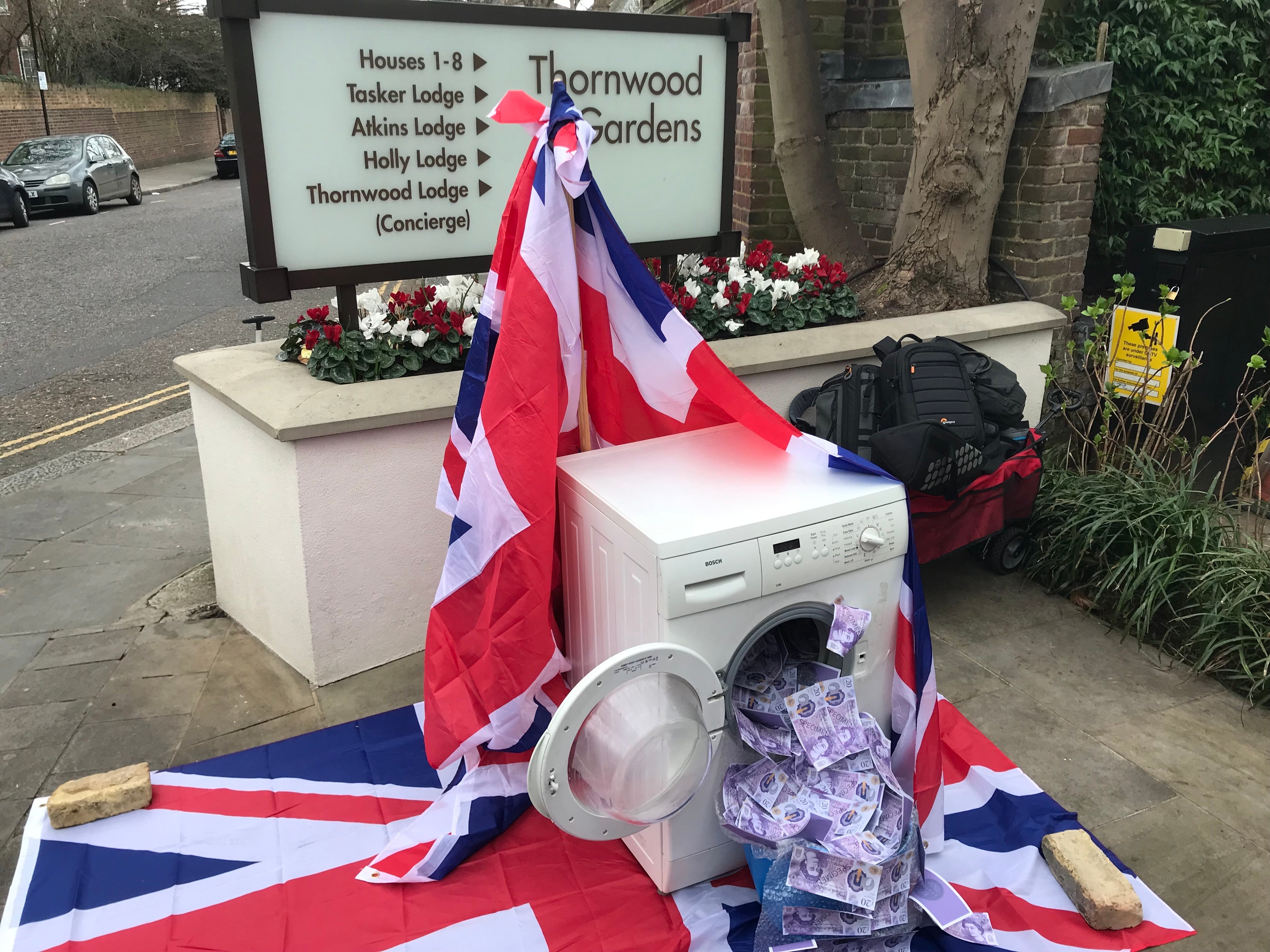
“It’s just the tip of the iceberg,” Ms Davies says. “There’s almost certainly much, much more here in London and across the UK.”
Another group, Kensington Against Dirty Money (KADM), launched this week and staged the washing machine stunt in Thornwood Gardens to highlight the need to combat corruption.
“The awful war in Ukraine has shone a light on our responsibility to take action against dirty money in London,” Flo Hutchings, a co-founder of the movement, explains.
“We’re a campaign taking local action but making a national point, a global point. It’s not right that there are 6,000 anonymous foreign-owned properties in this borough where thousands are on years-long waiting lists for social housing.”
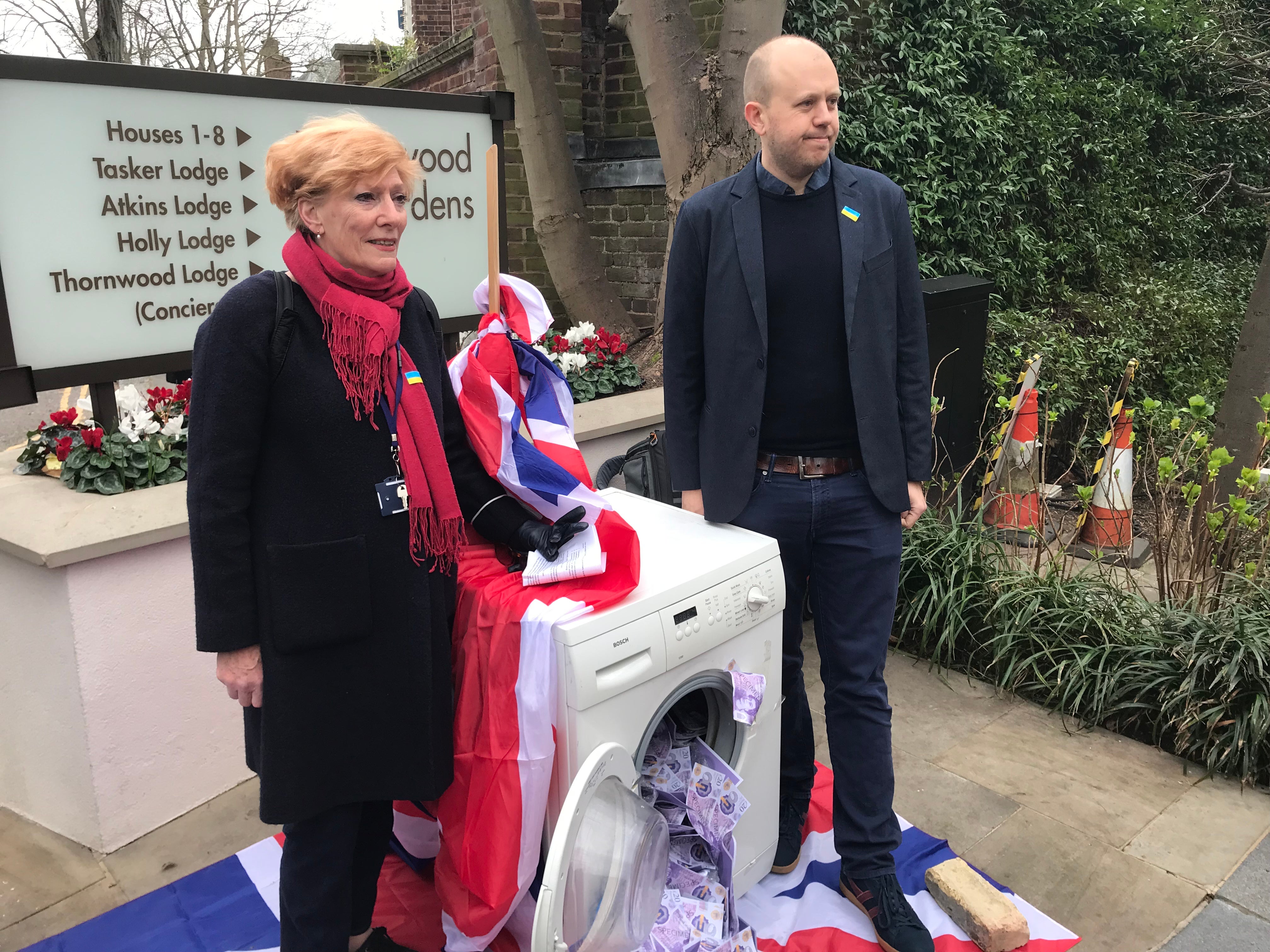
Joe Powell, KADM’s other co-founder, describes Kensington as “the epicentre of Britain’s dirty money problem”, adding that empty kleptocrat-owned properties have had an insidious effect on the borough, eroding the local community and its businesses.
Kensington residents have long understood the problem, but the war in Ukraine changed something, Powell believes. “There’s a moment now to say that this is not how we want our capital city to be. We also need to look at ourselves.
“It’s not just about autocrats and kleptocrats, it’s about our legal services, our banks, our accountants, our public relations firms, who have for a long time enabled dirty money to wash through our systems. A moment of introspection is needed.”
Powell says the government’s Economic Crime Bill, which will make it mandatory for shell companies to declare who owns property purchased in their name, is neither sufficient nor watertight. Under the law, kleptocrats will have a six-month grace period in which they can conceivably sell their homes.
“One piece of legislation this week is not enough to solve this problem, especially given that it is full of loopholes,” Mr Powell says.
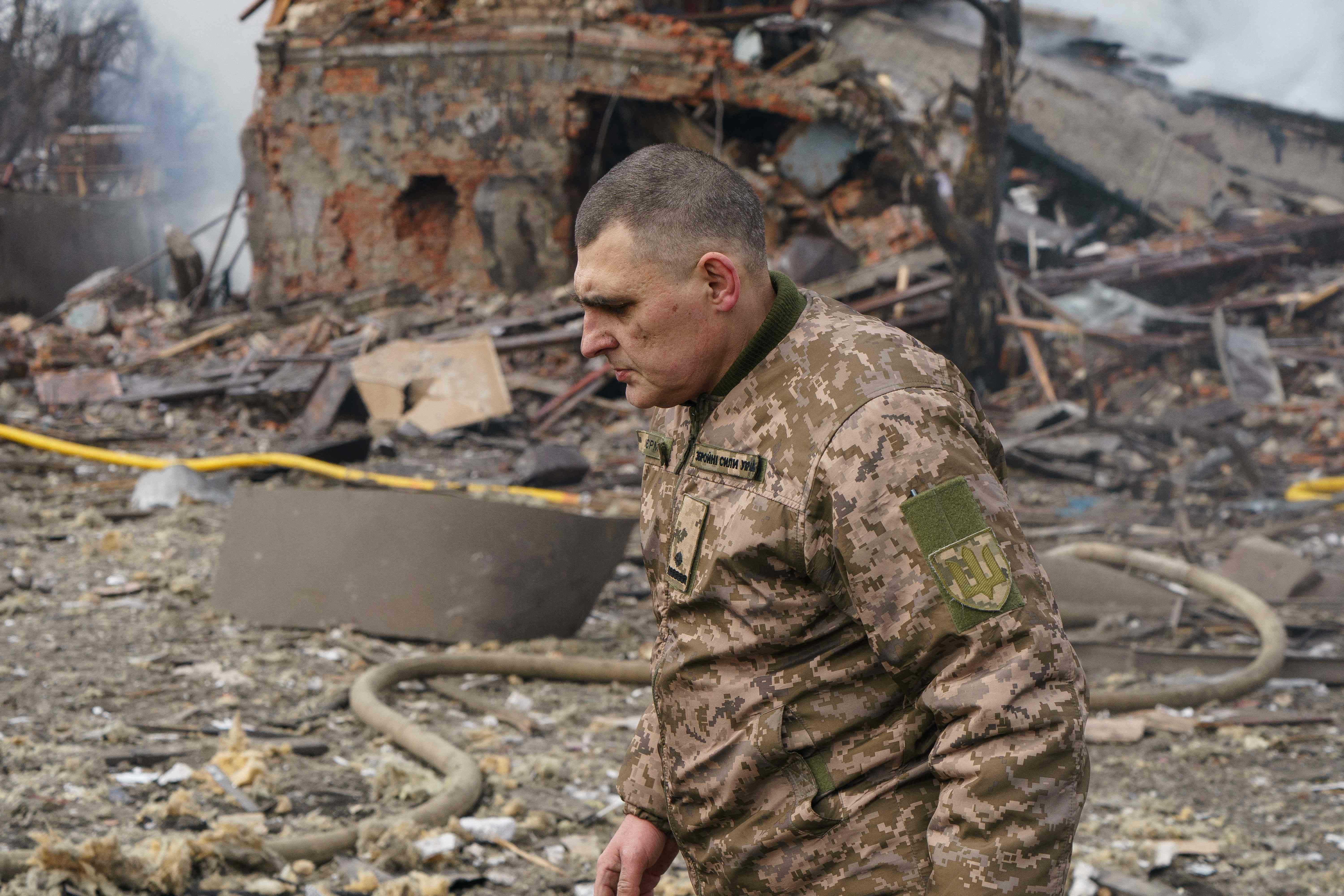
To Mr Powell’s mind, greater transparency must be accompanied by greater enforcement. The NCA and other enforcement agencies have had their budgets slashed by ministers in recent years, making it almost impossible to effectively target dirty money, he notes.
On the borough level, he says the council, which already raises a tax levy on empty properties, must update its list of homes that are not occupied. “If you spoke to any resident, they’d say the real number was much higher.” Kensington and Chelsea should also invest more in social housing, he adds.
In response to Kensington Against Dirty Money’s comments, Cllr Kim Taylor-Smith, the council’s housing lead, said it was “absolutely not right” that there are empty properties while 2,100 households are in temporary accommodation.
The borough will continue to lobby the government “for stronger legislation to help councils bring empty homes back into use”, he stressed.
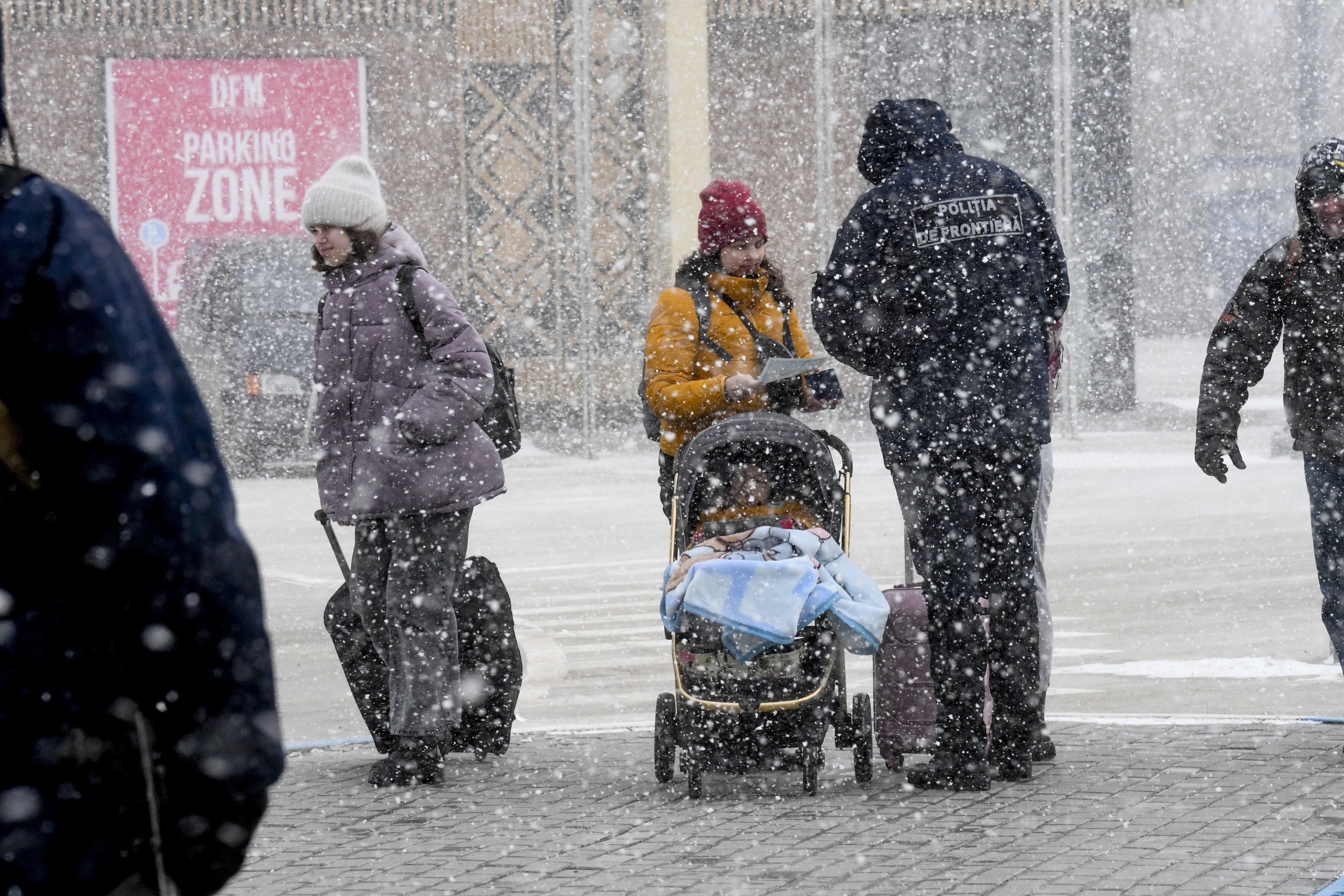
Sam Dodgson, a resident and aspiring Lib Dem councillor, has seen the detrimental effects empty properties have had on the area.
“We’re supposedly a village in the heart of London, but we’re a village with no one here. We’re becoming a dormitory town for investors. It’s upsetting.”
Monica Press, a local Labour councillor who has lived in the borough for 25 years, shares this view. Looking at the property behind the washing machine, she says: “My son went to Holland Park School. These were their playing fields. It’s now just a development that’s half empty.”
A government spokesperson said: “The government moved quickly in light of Russia’s invasion of Ukraine to bring forward the Economic Crime (Transparency and Enforcement) Bill, which will allow us to move more quickly with sanctions, prevent criminals from laundering their money in UK property, and strengthen unexplained wealth orders.
“This is part of a wider package of legislative proposals to tackle illicit finance, which will be introduced to parliament in the coming months, including reform of Companies House and new powers to seize crypto assets.
“We continue to lead the way in our fight against corruption, working closely with the private sector, international partners, and the crown dependencies and overseas territories, to ensure there are no safe havens for criminals to hide their dirty money.
“UK law enforcement has good existing information-sharing mechanisms with the crown dependencies and overseas territories, including on beneficial ownership information.”
